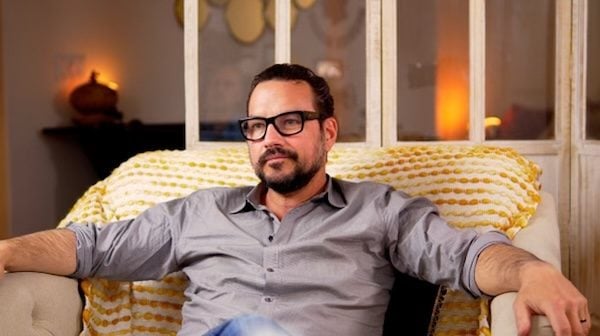
As a former actor on General Hospital and Days of Our Lives, I have been very open about my mental health journey and my experience with anxiety and bipolar disorder, as well as my recovery from alcoholism. Today, I regularly see a psychiatrist and a therapist and take medications to help treat my mental health conditions.
But before I took the leap to recovery, I struggled with my mental health. My addiction to alcohol contributed to losing my jobs on General Hospital and Days of Our Lives—no one else is to blame. I suffered from delirium tremens, the most severe form of alcohol withdrawal, and almost died after falling and hitting my head on a bathtub. I spent my recovery living with a family member in Ohio.
At the height of the COVID-19 pandemic, I would sometimes fall back into some similar habits that stemmed from managing my bipolar disorder and recovery from alcohol abuse. I was essentially shielded from the outside world. Being isolated allowed the mania associated with my bipolar disorder to come into full effect, and I wasn’t able to stop it. Over and over again, I would live an entire day and never be satisfied with what I would accomplish.
My only real contact with others during this time was through my 30-minute telehealth phone appointment, during which my therapist had no clue that I wasn’t taking care of myself. Just as I would act on television, I would act through my telehealth appointment.

Eventually, I saw the light, and I was in a fortunate enough position to be able to get the help I truly needed for my mental health and sobriety. I committed to an inpatient program where I could not fake it in front of my doctors. Once face to face, they helped me begin recovery and get my life back on track.
I’m fortunate that I was able to dedicate the time and resources to receive the proper care I needed with a group of doctors in person. But I also think it’s just as important to recognize the impact COVID-19 has had on our ability to receive in-person care.
COVID-19 affected the way the healthcare industry operates, along with the lifeline and ease telehealth has brought many people who previously struggled to access in-person appointments. However, I also would like others to acknowledge how telehealth care is not always the best long-term solution for many people, myself included, due to the persisting impact that mental health treatment can potentially have on a person.
Even during video calls, telehealth can make it more difficult for my psychiatrist to properly assess my behavioral changes—or to notice them. And as an actor and a person who struggles with mental health, sitting directly in front of my psychiatrist helps push me to be real in an appointment like I used to. While being able to receive care from the comfort of my own home via telehealth is convenient, I do not feel it should completely replace face-to-face care.
Being authentic and open with my psychiatrist has been an important component of my recovery process, to ensure that I don’t relapse and to track my progress with my mental health journey.
I also feel it’s important for my psychiatrist to see me in person to monitor whether I begin to develop mild or moderate body movements, called tardive dyskinesia (TD), associated with taking antipsychotics to treat my mental health conditions. TD is a condition in which people taking antipsychotics for a few months can experience uncontrollable movements in different parts of their bodies. Even mild movements from TD could also have emotional and social consequences.* I recognize how these movements could affect those in other careers or stages of life, including my own.
I’m fortunate to live in a state where I am able to see my health care provider for an in-person appointment, allowing me to receive a physical examination and have honest conversations on a regular basis. Not receiving physical screenings could deter someone from receiving proper care or even a diagnosis. I can confidently say that receiving in-person care is one of the main reasons I am living the life I am today.
I encourage those who struggle with mental health conditions to educate themselves on not only the potential benefits and risks of antipsychotics, but also the different methods of receiving treatment. If you feel like you are not receiving the most from telehealth treatment, do not be afraid to advocate for yourself and voice any concerns. Telehealth should complement, not replace, face-to-face care. Depending on your medical history, receiving a proper screening for TD in person every few months is an important step for healthcare providers to fully evaluate your health. My hope is that as we continue to emerge from the effects of the COVID-19 pandemic, we recognize the challenges telehealth can involve for people with complex health needs.
To learn more about TD and how prolonged the use of certain mental health medicines (antipsychotics) may be associated with uncontrollable body movements, visit TalkAboutTD.com for resources.
*Results based on a survey of 397 people diagnosed with TD (n=173) or suspected of having TD (n=224) who were asked the following question: “Tardive dyskinesia may impact you in many different ways. To what extent has tardive dyskinesia impacted you in each of the following areas?” Answers ranged on a scale of 1 (not impacted at all) to 7 (extremely impacted).
